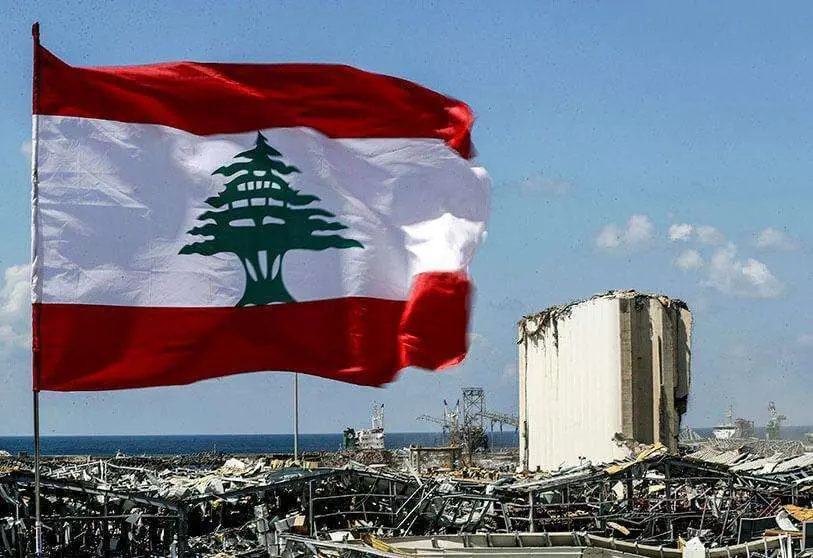International community urges Lebanon to form a government and implement reforms

The Lebanese Republic's political past precedes it. The instability triggered by the 2006 war between Israel and Hezbollah - and which finally brought down a country that was still recovering from a 15-year civil war - has not failed to have an effect on the Lebanese scene to this day. This was highlighted by the 13-month delay in the formation of Najib Mikati's government in 2021, following the resignation of Hassan Diab and his entire cabinet in the wake of the Beirut port explosion, and seems to be evident once again in the current political paralysis.
It is these fears of a prolonged governmental vacuum that have led representatives of Saudi Arabia, France and the United States, meeting on the sidelines of the 77th session of the UN General Assembly in New York, to issue a joint statement urging Beirut to form a new government team.
The United States, France, and the Kingdom of Saudi Arabia met today at #UNGA to express continuing support for Lebanon’s sovereignty, security, and stability. https://t.co/q41nGMjGdM
— U.S. State Dept - Near Eastern Affairs (@StateDept_NEA) September 21, 2022
"It is essential to elect a president who can unite the Lebanese people and work with regional and international actors to overcome the current crisis," the statement said. "We call for the formation of a government capable of implementing the structural and economic reforms that are urgently needed to address Lebanon's political and economic crises, specifically those reforms necessary to reach an agreement with the International Monetary Fund [IMF]".

An international call in which the Taif Accord - or 'Lebanese National Accord Document' - has become of paramount importance. For internal political purposes, and despite being a red line that no Lebanese are willing to cross, in practice it appears to be an added complication to political rapprochement; while for external purposes it is recognised as the guarantee of national unity and civil peace in the country. "We affirm the need for the Lebanese government [...] to commit to the Taif Agreement", stated the joint Saudi-French-US statement.
The Taiz Agreement, formalised in 1989 in the Saudi city of the same name, served to end the civil war that ravaged Lebanon between 1975 and 1990, and established a formula for sharing national power in quotas between the three main religious groups that governed the country's political life: the Christians (who would hold the office of president), the Sunni Muslims (the office of prime minister) and the Shiite Muslims.

In addition to the urgency of putting together Mikati's new executive cabinet - paralysed by political differences since last June - the international appeal has also arrived in the midst of the countdown to the expiry of Maronite Michel Aoun's presidential mandate on 31 October this year. Six years after his inauguration in 2016. This has raised the added concerns of Christian parties about finding a successor, and about not repeating the episode that kept Lebanon without a president for 29 years, just before Aoun's election.
The deadline for finding a new president began almost a month ago, on 1 September 2022, but expectations are low that any of the candidates will win the necessary backing from legislators (two-thirds support on the first ballot, or an absolute majority on successive ballots).

The main reason why Saudi Arabia, the United States and France have urged Beirut to implement structural and economic reforms is the serious crisis in which the Arab country has been mired since 2019. The worst in its history. According to the World Bank, one of the three worst in the world since the mid-19th century. The Lebanese GDP has contracted by more than 40% in the last three years, inflation remains in triple digits, foreign exchange reserves continue to decline, and the exchange rate fell this week to more than 38,000 Lebanese pounds for every US dollar.
The International Monetary Fund has already agreed to grant a financial assistance package aimed at alleviating the effects of the economic collapse and rescuing the country, but it will do so in exchange for reforms that the Lebanese political system seems to have condemned to "perpetual stagnation". "Despite the urgency of taking action to address Lebanon's deep economic and social crisis, progress in implementing the reforms agreed in April remains very slow," IMF representatives said after a three-day visit to Beirut.

The required reforms rest on five main axes: the implementation of fiscal reforms, anti-corruption measures, anti-money laundering measures, and the restructuring of the financial sector and external public debt.
And while banks inside the country announce their indefinite closure due to "lack of security" until further notice, outside, Lebanon continues to await an agreement on maritime borders with Israel. An issue that could facilitate the arrival of stability in the small territory of the Arabian Peninsula.








